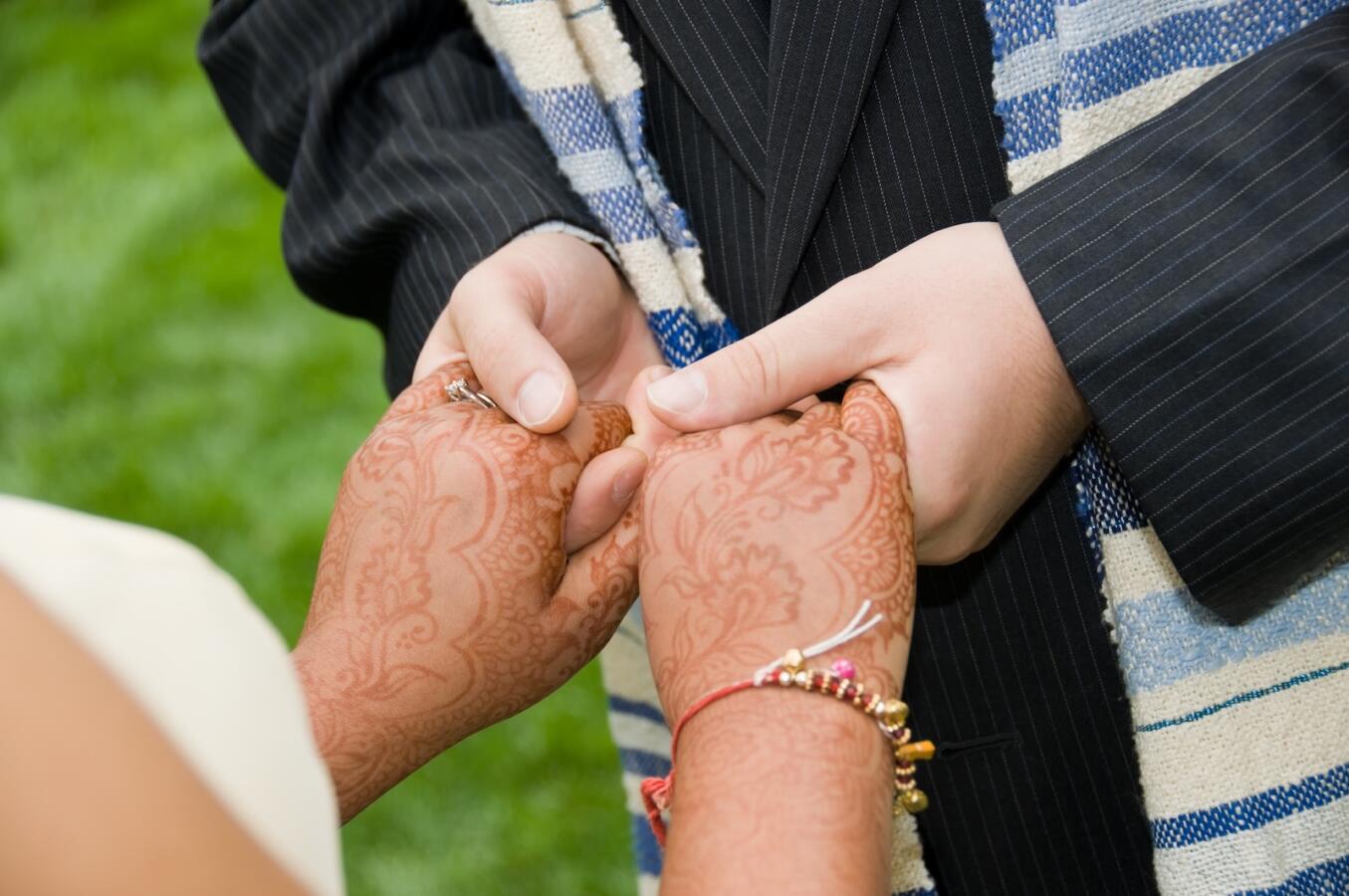Question: Dear friends of mine are planning their wedding and have asked me to participate. They are both Jewish, but plan to incorporate various Hindu and Native American traditions into the ceremony simply because they find them beautiful. This feels like cultural appropriation, which I oppose. Is there an ethical problem with this?
Let me start by saying that I’m a former religious studies major who routinely shares wisdom from diverse traditions and who quoted Kahlil Gibran at his wedding. So my first instinct is to say that bringing some cultural diversity into what is unquestionably a Jewish wedding would probably not be offensive, either to Jews or others.
But the key is not to offend our fellow humans, who like us are created in God’s image. This is the Jewish ethical principle of kavod habriyot, honoring God’s creations by promoting human dignity.
The principle originates in the ethical maxim from Tractate Avot 4:1: “Who is honorable? The one who honors others.” The possibilities for applying this are theoretically limitless, but for the ancient rabbis, the principle was largely invoked to make allowances in the law if human dignity was at stake. For example, for the sake of a person’s dignity, the rabbis permitted someone to carry three small stones on Shabbat if they were needed for wiping oneself in a latrine.
With your help, My Jewish Learning can provide endless opportunities for learning, connection and discovery.
In modern times, the principle has been applied in ways the ancient rabbis could never have imagined. In 2006, for instance, it was the foundation of a landmark halachic responsum by the Committee on Jewish Law and Standards of Conservative Judaism (CJLS) affirming same-sex relationships and the possibility of LGBTQ Conservative rabbis. Another modern application allows for the use of hearing aids on Shabbat.
I would contend that cultural appropriation, or insulting the faith of another person, could be seen as a betrayal of kavod habriyot. Admittedly, I have yet to see the concept used in this manner. And the sages would probably not be thrilled about introducing Hindu rituals into Jewish wedding ceremonies. But neither would they have imagined using the principle to justify LGBTQ rabbis.
In applying the principle in this way, the key is to distinguish between cultural appropriation, which is disrespectful and exploitative, and cultural appreciation, which is well-intended and gracious. The difference rests in part on consideration of the power dynamics at play, especially when discussing minority groups that have faced discrimination — in this case, Native Americans. And it rests in part on how the rituals themselves are performed. Is their original meaning and intent being distorted? Is another person’s faith being mocked?
In considering these questions, it might help to imagine how it would feel if the shoe were on the other foot and people at a Hindu wedding started stepping on a glass and yelling “Mazal tov.” I’d likely feel a little disrespected, or at the very least confused. Do these non-Jews genuinely understand the power and purpose of that ritual? Do they recognize the pain that Jews felt 2,000 years ago when mourning the destruction of the temple, which gave birth to that practice? Do they understand that this ritual now cries out with an intensified pathos following the Holocaust and October 7?
When I stumble upon a YouTube video of a Messianic congregation and see how they distort the original meanings of Jewish rituals to incorporate belief in Jesus, and yet still call it Judaism, I find it offensive. It seems inauthentic and manipulative to me, especially if it is aimed at proselytizing. I would be careful not to do the same thing in considering how to participate in this wedding.
Personally, I would tend to play it safe and not bring in actual rituals unless Hindu and Native American representatives are present to fully explain and authenticate them. But whatever you decide, I would recommend focusing on respect, sensitivity and authenticity in deciding whether and how it’s appropriate to appropriate.
One question you didn’t ask but might consider is whether incorporating those traditions into a Jewish ceremony might be offensive not to Hindus and Native Americans, but to Jews. Some might be offended at bringing foreign religions — especially two that have long been considered idolatrous — into a Jewish ceremony. Strictly speaking, associating with rites from polytheistic faiths is forbidden in Jewish tradition.
For me, this wouldn’t be a problem. I personally do not feel a Jewish wedding ceremony is compromised by a demonstration of cultural coexistence. If it’s a Jewish wedding with a meaningful passage from Rabindranath Tagore or Chief Seattle thrown in — or the music of Pachelbel’s Canon, for that matter — well, Judaism has long benefited from the influence of other traditions. It’s a perk of surviving nearly 4,000 years. But not everyone will necessarily feel this way, so it may be wise to consider who will be in attendance at this particular wedding.
Bottom line: Choosing to participate can be an ethical choice. But you might ask whether the added selections will truly do honor to those faith traditions and their adherents. And if the couple is looking for suggestions, they can contact me for a great passage from Kahlil Gibran.

Rabbi Joshua Hammerman is the author of Mensch-Marks: Life Lessons of a Human Rabbi and Embracing Auschwitz: Forging a Vibrant, Life-Affirming Judaism That Takes the Holocaust Seriously. See more of his writing at his Substack page, In This Moment.



